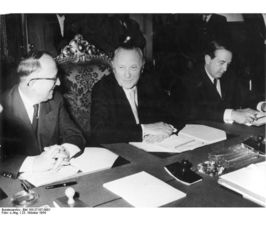Jour Fixe: Felix Lange: Between Foreign Policy Advice and Systematization
Jour Fixe
- Date: Jul 11, 2016
- Time: 12:00 PM - 01:00 PM (Local Time Germany)
- Speaker: Felix Lange
- Topic: Between Foreign Policy Advice and Systematization – Hermann Mosler and Western German International Legal Scholarship after 1945
- Location: MPIeR
- Room: Z 01
